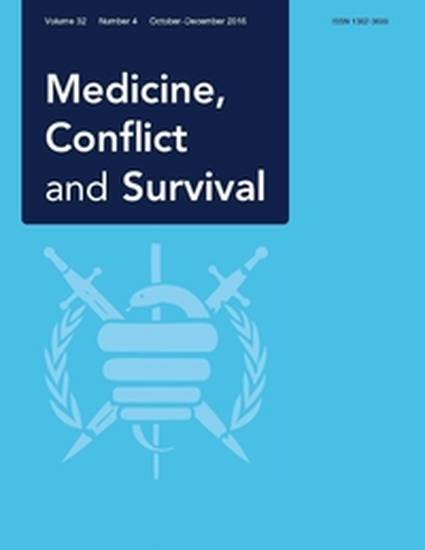
Article
Mortality, Crime and Access to Basic Needs Before and After the Haiti Earthquake: A Random Survey of Port-au-Prince Households
Medicine, Conflict and Survival
(2010)
Abstract
On 12 January 2010 an earthquake measuring 7.0 on the Richter Scale struck Haiti, causing unprecedented death, injury and destruction for an event of this magnitude. Our aim was to generate a rapid assessment of the primary consequences for the population of the metropolitan area of Port-au-Prince, the national capital. During the summer of 2009 we conducted a survey of 1,800 households in metropolitan Port-au-Prince. Six weeks after the earthquake, we attempted to trace these households in order to re-interview them. The questionnaire examined mortality and injuries generated by the natural disaster, as well as the character of victimization, food security and living arrangements following the quake. Data analysis incorporated sampling weights and adjusted for clustering within households. The original 2009 survey featured a 90 per cent response rate; in 2010 we re-interviewed 93 per cent of these households. We estimate that 158,679 people in Port-au-Prince (95 per cent CI 136,813–180,545) died during the quake or in the six-week period afterwards owing to injuries or illness. Children were at particular risk for death. In the six weeks after the earthquake, 10,813 people (95 per cent CI 6,726–14,900) were sexually assaulted, the vast majority of whom were female. In the same period 4,645 individuals (95 per cent CI 1,943–7,347) were physically assaulted. Of all households, 18.6 per cent (95 per cent CI 16.6–20.8) were experiencing severe food insecurity six weeks after the earthquake. 24.4 per cent (95 per cent CI 22.1–26.9) of respondents' homes were completely destroyed. Many residents of Port-au-Prince died during or as a result of the earthquake, albeit fewer than were widely reported. More than half of the capital's population experienced moderate to severe food insecurity, though remittances are a major protective factor in promoting food security. Survivors continue to experience high levels of sexual assault and limited access to durable shelter.
Keywords
- mortality,
- earthquake,
- Haiti,
- food insecurity,
- sexual assault,
- shelter,
- crime,
- disaster
Disciplines
Publication Date
October, 2010
Citation Information
Athena R. Kolbe, Royce A. Hutson, Harry Shannon, Eileen Trzcinski, et al.. "Mortality, Crime and Access to Basic Needs Before and After the Haiti Earthquake: A Random Survey of Port-au-Prince Households" Medicine, Conflict and Survival Vol. 26 Iss. 4 (2010) Available at: http://works.bepress.com/royce_hutson/2/
